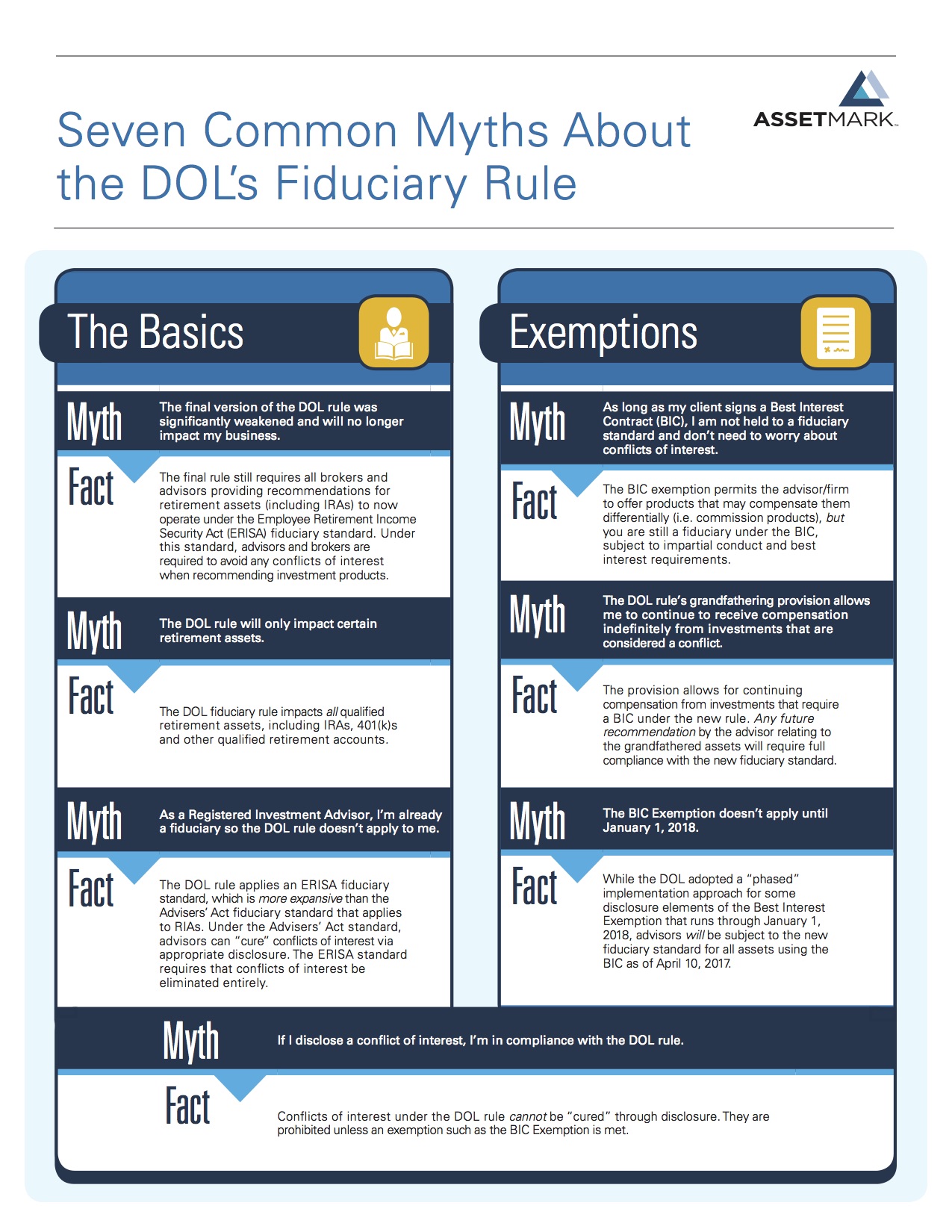Matrisian argues that advisors and firms should be proactive and put in place new processes and procedures for complying with the rule as soon as possible. Those who choose to wait until April 10, 2017 or Jan. 1, 2018 to respond to the new regulations will face significant disadvantages.
“The timing behind this becomes messy,” Matrisian says. “Assuming that advisors sit on their hands and don’t do anything until April 2017, at that point they’re going to try to buy more time so they’ll send out their grandfathering notices. Then, midway through summer, they’re going to be meeting with their clients and will have to get the BIC signed off on because they’re providing advice. Then, at years end, they’ll likely come to realize that they can’t continue receiving differential compensation, it’s just too burdensome to have everyone sign off on a BIC, so they put clients on notice a third time to notify them of a change to levelized compensation.
“In a short period of time -- six months or less -- their clients could receive at least three different notices of how the advisor is being compensated. That’s typically not something advisors want to put front and center.”









